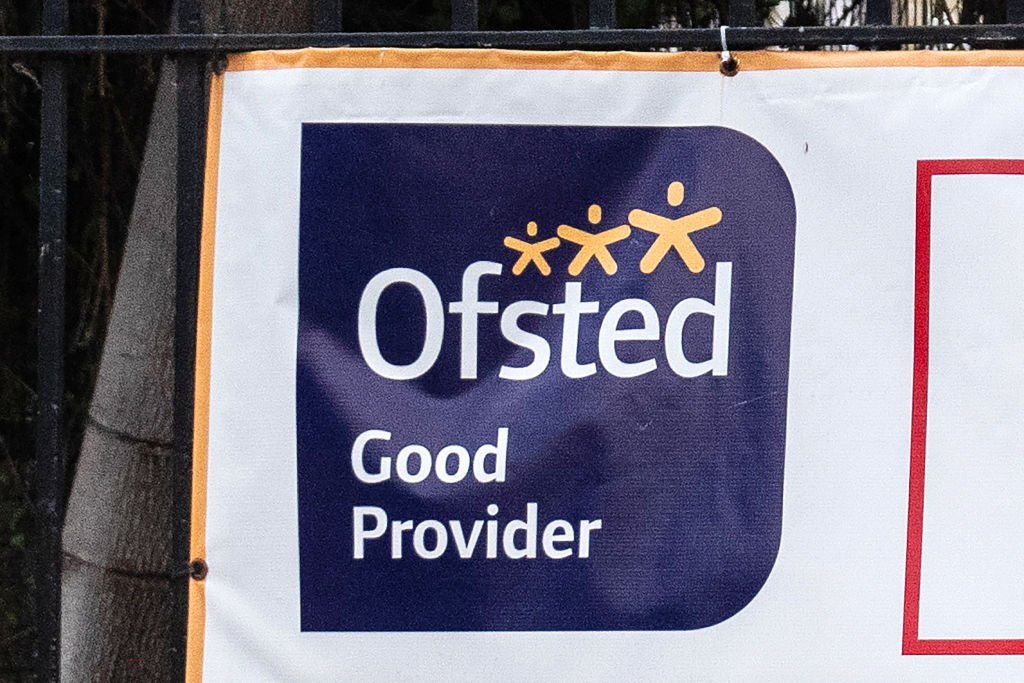The teaching unions never let a good crisis go to waste. Following the tragic death of Ruth Perry, the headteacher of Caversham Primary School in Reading, who took her own life after Ofsted told her it was going to downgrade her school from ‘Outstanding’ to ‘Inadequate’, the NEU has called for the Office for Standards in Education, Children’s Services and Skills to be replaced by a body that’s ‘supportive, effective and fair’.
As the co-founder of four free schools, I feel ambivalent about Ofsted. On the one hand, Ofsted has been kind to my schools, ranking three of them ‘Outstanding’ and one of them ‘Good’. But on the other, there isn’t much correlation between how pupils perform and a school’s Ofsted rating.
In 2020, the behavioural geneticist Robert Plomin, along with several colleagues, looked at what percentage of the variance in individual GCSE results could be explained by the Ofsted rating of the school they attended, i.e. whether it was ranked ‘Outstanding’, ‘Good’ ‘Requires Improvement’ or ‘Inadequate’. They published their results in the Journal of Child Psychology and Psychiatry and they weren’t encouraging from Ofsted’s point of view: the variance was 4.4 per cent. ‘Each school quality category contains students who achieved a wide mix of grades at GCSE,’ wrote Plomin et al. Moreover, when the researchers controlled for parental socio-economic status and the pupils’ prior attainment (how they had performed in primary school), the variance in GCSE results predicted by a school’s Ofsted rating fell from 4.4 per cent to less than 1 per cent.
A similar conclusion was reached by a group of researchers in another study published earlier this year – this team led by the social scientist John Jerrim, who was seconded to Ofsted until recently. They concluded: ‘[P]arents who choose a “good” secondary school for their child will not leave with appreciably better outcomes than a parent who selects an “inadequate” school.’
This doesn’t mean the Ofsted inspectors are bad at their jobs. Behavioural geneticists have long established that the ‘quality’ of a particular school, however carefully measured, has a negligible influence on how an individual child performs in his or her exams, and pales into insignificance next to the covariates Plomin and his colleagues controlled for, not to mention the child’s IQ and the genetic markers associated with educational attainment. In short, the characteristics a child possesses on entering a school are what matter when it comes to their exam results, not how good the school is. So the judgement of the Ofsted inspectors could be completely infallible and there would still be virtually no correlation between a school’s Ofsted rating and how an individual pupil is likely to perform.
If a school’s rating is a poor guide to how your child is likely to do at that school, it does raise the question: ‘What’s the point of Ofsted?’ According to the National Audit Office, £44 million was spent on 6,079 school inspections in 2017/18, an average of £7,200 per school. Defenders of the inspection system, with its four-part classification system, say it provides a useful guide to parents. But does it? Not if what parents care about is how well their child is likely to do in his or her GCSEs.
Ofsted’s champions could fall back on another argument. Okay, there may be almost no correlation between how a school is rated and the variance in individual GCSE results. But it’s still possible that, by holding all schools to account, Ofsted helps maintain standards. Even its critics acknowledge it performed a useful service when ratings were first introduced in 1993, identifying failing schools that had hitherto escaped scrutiny. And what’s the alternative? A system in which schools aren’t inspected at all, or held to a lower bar? Presumably, when the teaching unions call for a warmer, cuddlier inspectorate, what they have in mind is a body more like Education Scotland, which recently advertised for a ‘race literacy’ tsar even though 96 per cent of the Scottish population is white. But Scotland’s educational performance, as measured by the latest PISA survey, isn’t a great advertisement for more forgiving school inspections.
Another reason Ofsted is unlikely to be scrapped is that it’s a useful tool of government policy. In 2019, the current chief inspector, Amanda Spielman – who I would rate ‘Outsanding’ – asked her staff to prioritise the curriculum when assessing a school’s quality, a shift in keeping with the direction of travel in education policy since 2010. As a result, schools have begun to place more emphasis on the teaching of knowledge rather than skills, a welcome development.
The result of the latest brouhaha is likely to be a typical English fudge: the organisation will soldier on, but the one-word, summary judgements – ‘Outstanding’, ‘Good’, ‘Requires Improvement’ and ‘Inadequate’ – may go. Damning verdicts could be couched in more diplomatic language, while schools will be effusively praised for modest achievements. Parents poring over the judgements will struggle to work out whether a school is getting a thumbs up or a thumbs down, but since it will have little bearing on their child’s GCSE results perhaps that doesn’t matter.







Comments